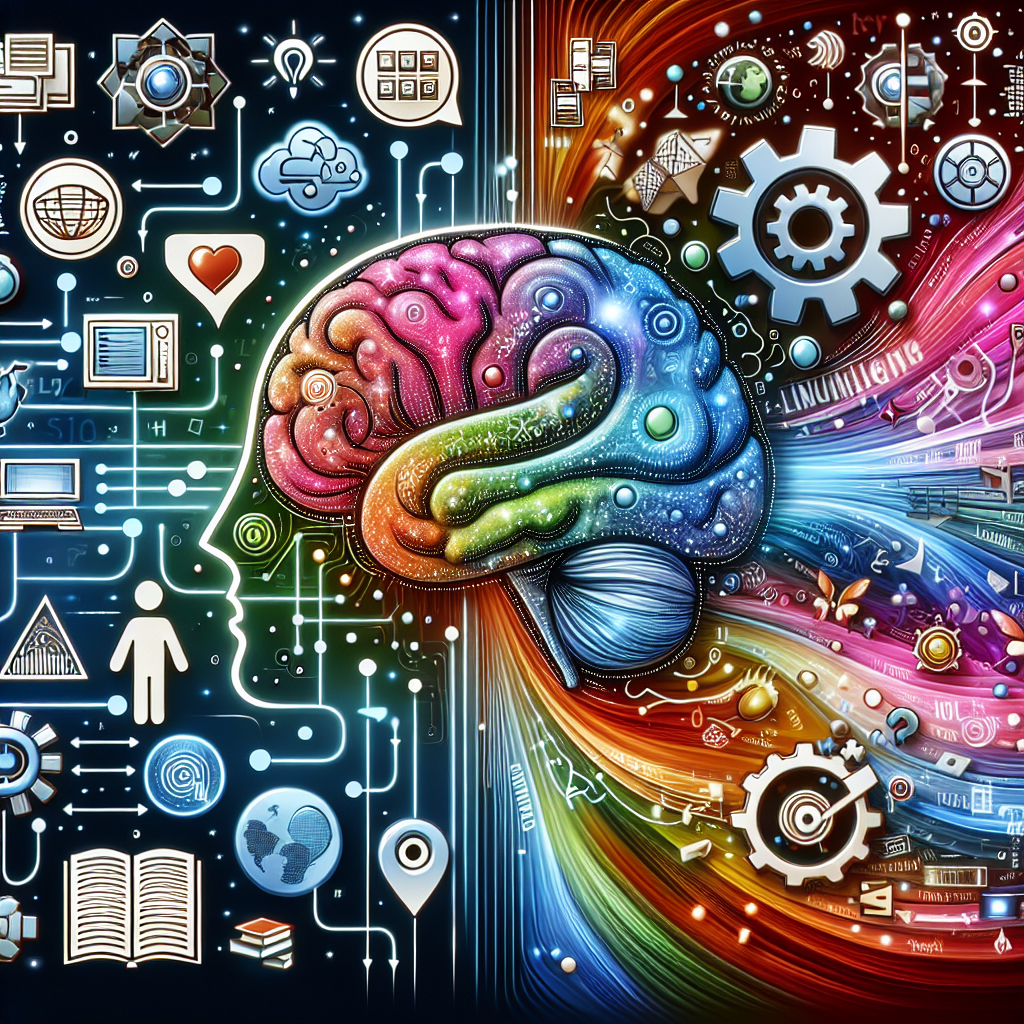Natural Language Processing (NLP) is a branch of artificial intelligence that focuses on the interaction between computers and humans using natural language. NLP enables computers to understand, interpret, and generate human language in a way that is valuable. Cognitive computing, on the other hand, is a technology that aims to simulate human thought processes in a computerized model. The combination of NLP and cognitive computing has the potential to revolutionize the way we interact with technology and make it more human-like.
One of the key impacts of NLP on cognitive computing is the ability to analyze and interpret vast amounts of unstructured data. NLP allows computers to process and understand human language in a way that was previously impossible. This means that cognitive computing systems can now analyze text, speech, and other forms of natural language data to extract valuable insights and make informed decisions.
Another important impact of NLP on cognitive computing is the ability to improve the user experience. By enabling computers to understand and respond to human language, NLP makes it easier for users to interact with technology in a more natural and intuitive way. This can lead to increased user satisfaction and productivity, as well as improved accessibility for individuals with disabilities.
Furthermore, NLP can enhance cognitive computing systems by enabling them to generate human-like responses. This means that computers can engage in more meaningful conversations with users, provide personalized recommendations, and even simulate emotions. By incorporating NLP into cognitive computing systems, we can create more human-like and empathetic AI assistants that can better understand and respond to human needs.
There are many applications of NLP in cognitive computing, including virtual assistants, chatbots, sentiment analysis, and language translation. Virtual assistants like Siri, Alexa, and Google Assistant use NLP to understand and respond to user queries in a conversational manner. Chatbots, on the other hand, use NLP to interact with customers on websites and social media platforms, providing instant support and information.
Sentiment analysis is another important application of NLP in cognitive computing. By analyzing text data from social media, customer reviews, and other sources, computers can determine the sentiment behind the text and provide insights into customer opinions and preferences. This can help businesses improve their products and services, as well as tailor their marketing strategies to better meet customer needs.
Language translation is also a key application of NLP in cognitive computing. By using machine learning algorithms, computers can translate text from one language to another with high accuracy. This can help break down language barriers and facilitate communication between individuals who speak different languages.
Overall, the impact of NLP on cognitive computing is profound. By enabling computers to understand, interpret, and generate human language, NLP is revolutionizing the way we interact with technology and making it more human-like. This has the potential to improve user experiences, enhance decision-making processes, and drive innovation in a wide range of industries.
FAQs:
Q: What is the difference between NLP and cognitive computing?
A: NLP is a branch of artificial intelligence that focuses on the interaction between computers and humans using natural language. Cognitive computing, on the other hand, aims to simulate human thought processes in a computerized model. The combination of NLP and cognitive computing enables computers to understand, interpret, and generate human language in a way that is valuable.
Q: What are the key impacts of NLP on cognitive computing?
A: Some key impacts of NLP on cognitive computing include the ability to analyze and interpret vast amounts of unstructured data, improve the user experience, and generate human-like responses. NLP enables computers to process and understand human language, leading to more meaningful interactions with technology.
Q: What are some applications of NLP in cognitive computing?
A: Some applications of NLP in cognitive computing include virtual assistants, chatbots, sentiment analysis, and language translation. Virtual assistants like Siri and Alexa use NLP to understand and respond to user queries, while chatbots provide instant support on websites and social media platforms. Sentiment analysis helps businesses understand customer opinions, and language translation breaks down language barriers.
Q: How can NLP enhance cognitive computing systems?
A: NLP can enhance cognitive computing systems by enabling them to process and understand human language, generate human-like responses, and improve the user experience. By incorporating NLP into cognitive computing systems, we can create more human-like and empathetic AI assistants that better understand and respond to human needs.

